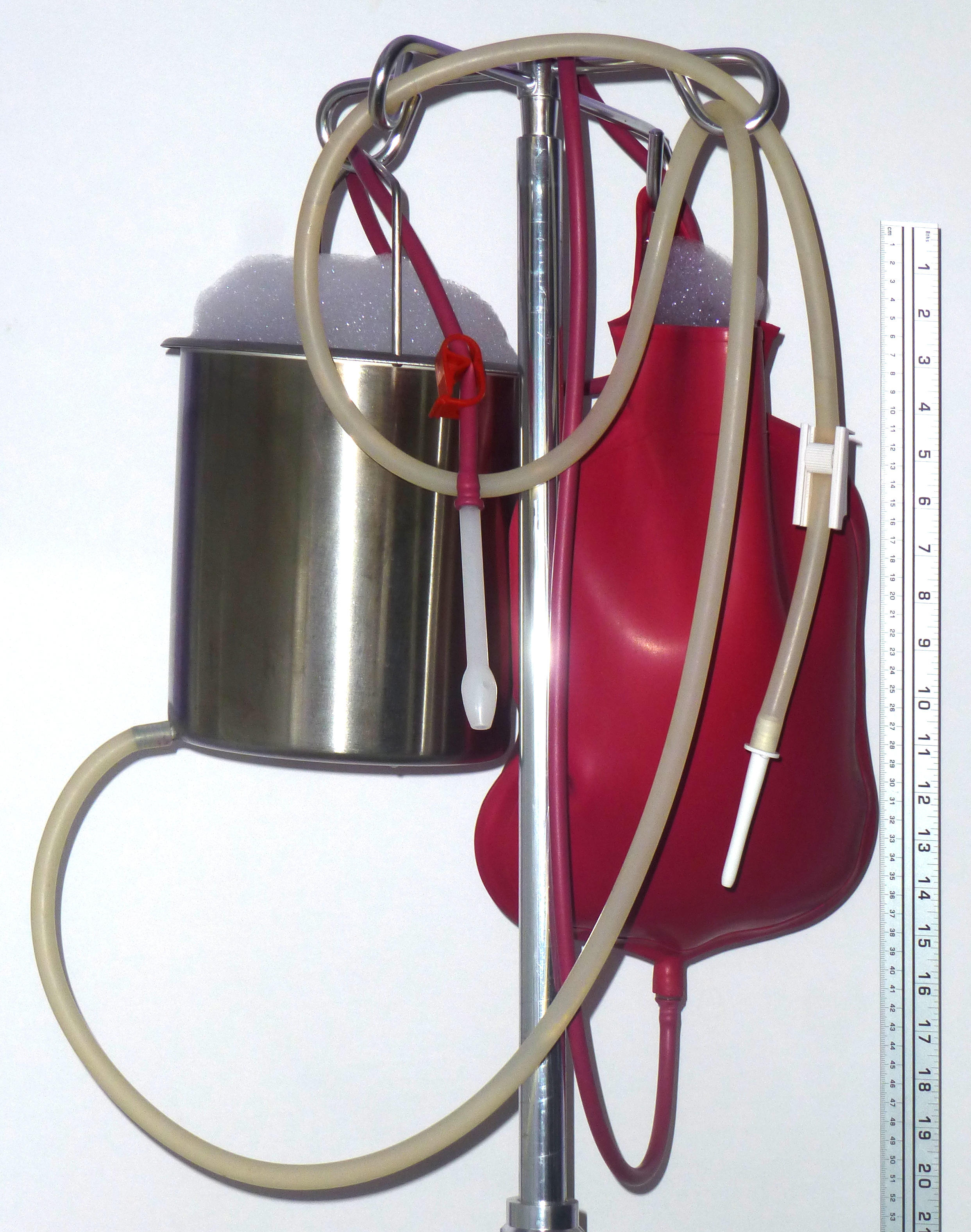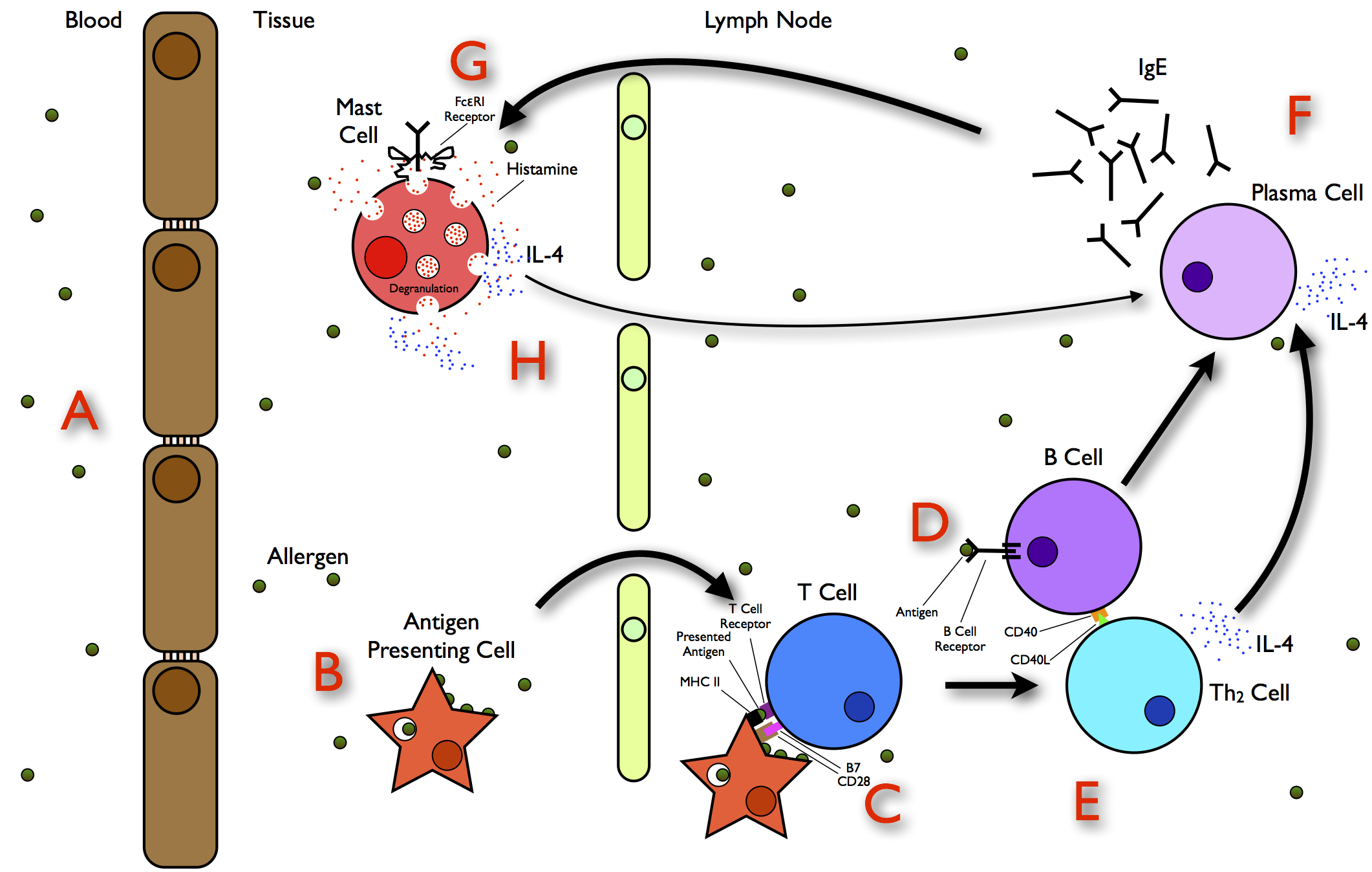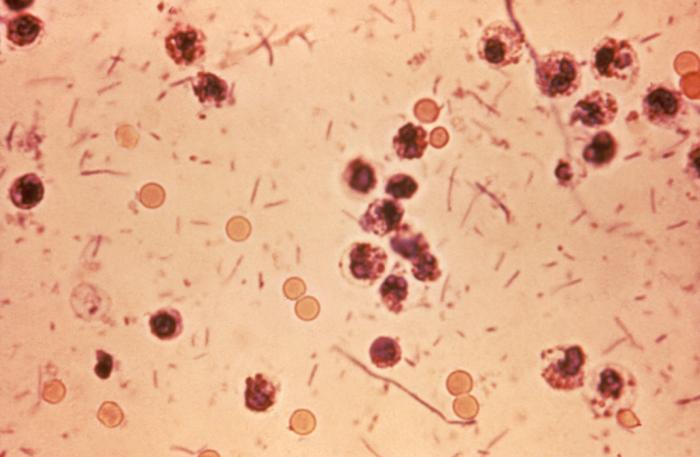|
Mucoid Plaque
Mucoid plaque (or mucoid cap or rope) is a pseudoscientific term used by some alternative medicine advocates to describe what is claimed to be a combination of harmful mucus-like material and food residue that they say coats the gastrointestinal tract of most people. The term was coined by Richard Anderson, a naturopath and entrepreneur, who sells a range of products that claim to "cleanse" the body of such purported plaques. Many such " colon cleansing" products are promoted to the public on websites that have been described as making misleading medical claims. The presence of laxatives, bentonite clay, and fibrous thickening agents in some of these "cleansing agents" has led to suggestions that the products themselves produce the excreted matter regarded as the plaque. The concept of a 'mucoid plaque' has been dismissed by medical experts as having no anatomical or physiological basis. History Various forms of colon cleansing were popular in the 19th and early 20th century. I ... [...More Info...] [...Related Items...] OR: [Wikipedia] [Google] [Baidu] |
Medicine
Medicine is the science and Praxis (process), practice of caring for patients, managing the Medical diagnosis, diagnosis, prognosis, Preventive medicine, prevention, therapy, treatment, Palliative care, palliation of their injury or disease, and Health promotion, promoting their health. Medicine encompasses a variety of health care practices evolved to maintain and restore health by the prevention (medical), prevention and treatment of illness. Contemporary medicine applies biomedical sciences, biomedical research, medical genetics, genetics, and medical technology to diagnosis (medical), diagnose, treat, and prevent injury and disease, typically through pharmaceuticals or surgery, but also through therapies as diverse as psychotherapy, splint (medicine), external splints and traction, medical devices, biologic medical product, biologics, and Radiation (medicine), ionizing radiation, amongst others. Medicine has been practiced since Prehistoric medicine, prehistoric times, and ... [...More Info...] [...Related Items...] OR: [Wikipedia] [Google] [Baidu] |
Naturopath
Naturopathy, or naturopathic medicine, is a form of alternative medicine. A wide array of practices branded as "natural", "non-invasive", or promoting "self-healing" are employed by its practitioners, who are known as naturopaths. Difficult to generalize, these treatments range from the pseudoscientific and thoroughly discredited, like homeopathy, to the widely accepted, like certain forms of psychotherapy. The ideology and methods of naturopathy are based on vitalism and folk medicine rather than evidence-based medicine, although practitioners may use techniques supported by evidence. The ethics of naturopathy have been called into question by medical professionals and its practice has been characterized as quackery. Naturopathic practitioners commonly encourage alternative treatments that are rejected by conventional medicine, including resistance to surgery or vaccines for some patients. The diagnoses made by naturopaths often have no basis in science and are often not acc ... [...More Info...] [...Related Items...] OR: [Wikipedia] [Google] [Baidu] |
Melena
Melena is a form of blood in stool which refers to the dark black, tarry feces that are commonly associated with upper gastrointestinal bleeding. The black color and characteristic strong odor are caused by hemoglobin in the blood being altered by digestive enzymes and intestinal bacteria. Iron supplements may cause a grayish-black stool that should be distinguished from melena, as should black coloration caused by a number of medications, such as bismuth subsalicylate (the active ingredient in Pepto-Bismol), or by foods such as beetroot, black liquorice, or blueberries. Causes The most common cause of melena is peptic ulcer disease. However, any bleeding within the upper gastrointestinal tract or the ascending colon can lead to melena. Melena may also be a complication of anticoagulant medications, such as warfarin. Causes of upper gastrointestinal bleeding that may result in melena include malignant tumors affecting the esophagus, stomach or small intestine, hemorrhag ... [...More Info...] [...Related Items...] OR: [Wikipedia] [Google] [Baidu] |
University Of Texas
The University of Texas at Austin (UT Austin, UT, or Texas) is a public research university in Austin, Texas, United States. Founded in 1883, it is the flagship institution of the University of Texas System. With 53,082 students as of fall 2023, it is also the largest institution in the system. The university is a major center for academic research, with research expenditures totaling $1.06 billion for the 2023 fiscal year. It joined the Association of American Universities in 1929. The university houses seven museums and seventeen libraries, including the Lyndon B. Johnson Presidential Library and the Blanton Museum of Art, and operates various auxiliary research facilities, such as the J. J. Pickle Research Campus and McDonald Observatory. UT Austin's athletics constitute the Texas Longhorns. The Longhorns have won four NCAA Division I National Football Championships, six NCAA Division I National Baseball Championships, sixteen NCAA Division I National Men's Swimming ... [...More Info...] [...Related Items...] OR: [Wikipedia] [Google] [Baidu] |
Hoax
A hoax (plural: hoaxes) is a widely publicised falsehood created to deceive its audience with false and often astonishing information, with the either malicious or humorous intent of causing shock and interest in as many people as possible. Some hoaxers intend to eventually unmask their representations as having been a hoax so as to expose their victims as fools; seeking some form of profit, other hoaxers hope to maintain the hoax indefinitely, so that it is only when skeptical people willing to investigate their claims publish their findings, that the hoaxers are finally revealed as such. History Zhang Yingyu's '' The Book of Swindles'' ( 1617), published during the late Ming dynasty, is said to be China's first collection of stories about fraud, swindles, hoaxes, and other forms of deception. Although practical jokes have likely existed for thousands of years, one of the earliest recorded hoaxes in Western history was the drummer of Tedworth in 1661. The communication of ... [...More Info...] [...Related Items...] OR: [Wikipedia] [Google] [Baidu] |
Physician
A physician, medical practitioner (British English), medical doctor, or simply doctor is a health professional who practices medicine, which is concerned with promoting, maintaining or restoring health through the Medical education, study, Medical diagnosis, diagnosis, prognosis and therapy, treatment of disease, injury, and other physical and mental impairments. Physicians may focus their practice on certain disease categories, types of patients, and methods of treatment—known as Specialty (medicine), specialities—or they may assume responsibility for the provision of continuing and comprehensive medical care to individuals, families, and communities—known as general practitioner, general practice. Medical practice properly requires both a detailed knowledge of the Discipline (academia), academic disciplines, such as anatomy and physiology, pathophysiology, underlying diseases, and their treatment, which is the science of medicine, and a decent Competence (human resources ... [...More Info...] [...Related Items...] OR: [Wikipedia] [Google] [Baidu] |
Empirical Data
Empirical evidence is evidence obtained through sense experience or experimental procedure. It is of central importance to the sciences and plays a role in various other fields, like epistemology and law. There is no general agreement on how the terms ''evidence'' and ''empirical'' are to be defined. Often different fields work with quite different conceptions. In epistemology, evidence is what justifies beliefs or what determines whether holding a certain belief is rational. This is only possible if the evidence is possessed by the person, which has prompted various epistemologists to conceive evidence as private mental states like experiences or other beliefs. In philosophy of science, on the other hand, evidence is understood as that which '' confirms'' or ''disconfirms'' scientific hypotheses and arbitrates between competing theories. For this role, evidence must be public and uncontroversial, like observable physical objects or events and unlike private mental states, so th ... [...More Info...] [...Related Items...] OR: [Wikipedia] [Google] [Baidu] |
Anecdotal Evidence
Anecdotal evidence (or anecdata) is evidence based on descriptions and reports of individual, personal experiences, or observations, collected in a non- systematic manner. The term ''anecdotal'' encompasses a variety of forms of evidence. This word refers to personal experiences, self-reported claims, or eyewitness accounts of others, including those from fictional sources, making it a broad category that can lead to confusion due to its varied interpretations. Anecdotal evidence can be true or false but is not usually subjected to the methodology of scholarly method, the scientific method, or the rules of legal, historical, academic, or intellectual rigor, meaning that there are little or no safeguards against fabrication or inaccuracy. However, the use of anecdotal reports in advertising or promotion of a product, service, or idea may be considered a testimonial, which is highly regulated in certain jurisdictions. The persuasiveness of anecdotal evidence compared to that of ... [...More Info...] [...Related Items...] OR: [Wikipedia] [Google] [Baidu] |
Allergies
Allergies, also known as allergic diseases, are various conditions caused by hypersensitivity of the immune system to typically harmless substances in the environment. These diseases include Allergic rhinitis, hay fever, Food allergy, food allergies, atopic dermatitis, allergic asthma, and anaphylaxis. Symptoms may include allergic conjunctivitis, red eyes, an itchy rash, sneeze, sneezing, coughing, a rhinorrhea, runny nose, shortness of breath, or swelling. Note that food intolerances and food poisoning are separate conditions. Common allergens include pollen and certain foods. Metals and other substances may also cause such problems. Food, insect stings, and medications are common causes of severe reactions. Their development is due to both genetic and environmental factors. The underlying mechanism involves immunoglobulin E antibodies (IgE), part of the body's immune system, binding to an allergen and then to FcεRI, a receptor on mast cells or basophils where it triggers ... [...More Info...] [...Related Items...] OR: [Wikipedia] [Google] [Baidu] |
Bowel Cancer
Colorectal cancer (CRC), also known as bowel cancer, colon cancer, or rectal cancer, is the development of cancer from the colon or rectum (parts of the large intestine). Signs and symptoms may include blood in the stool, a change in bowel movements, weight loss, abdominal pain and fatigue. Most colorectal cancers are due to lifestyle factors and genetic disorders. Risk factors include diet, obesity, smoking, and lack of physical activity. Dietary factors that increase the risk include red meat, processed meat, and alcohol. Another risk factor is inflammatory bowel disease, which includes Crohn's disease and ulcerative colitis. Some of the inherited genetic disorders that can cause colorectal cancer include familial adenomatous polyposis and hereditary non-polyposis colon cancer; however, these represent less than 5% of cases. It typically starts as a benign tumor, often in the form of a polyp, which over time becomes cancerous. Colorectal cancer may be diagnosed by obta ... [...More Info...] [...Related Items...] OR: [Wikipedia] [Google] [Baidu] |
Diarrhea
Diarrhea (American English), also spelled diarrhoea or diarrhœa (British English), is the condition of having at least three loose, liquid, or watery bowel movements in a day. It often lasts for a few days and can result in dehydration due to fluid loss. Signs of dehydration often begin with loss of the normal stretchiness of the skin and irritable behaviour. This can progress to decreased urination, loss of skin color, a fast heart rate, and a decrease in responsiveness as it becomes more severe. Loose but non-watery stools in babies who are exclusively breastfed, however, are normal. What is diarrhea? How is it caused, treated and prevented? (see also script)The most common cause is an infection of the intestines due to a virus, bacterium, or parasite—a condition also known as gastroenteritis. These infections are often acquired from food or water that has been contaminated by feces, or directly from another person who is infected. The three types of diarrhea ... [...More Info...] [...Related Items...] OR: [Wikipedia] [Google] [Baidu] |
Pathogen
In biology, a pathogen (, "suffering", "passion" and , "producer of"), in the oldest and broadest sense, is any organism or agent that can produce disease. A pathogen may also be referred to as an infectious agent, or simply a Germ theory of disease, germ. The term ''pathogen'' came into use in the 1880s. Typically, the term ''pathogen'' is used to describe an ''infectious'' microorganism or agent, such as a virus, bacterium, protozoan, prion, viroid, or fungus. Small animals, such as helminths and insects, can also cause or Transmission (medicine), transmit disease. However, these animals are usually referred to as parasites rather than pathogens. The scientific study of microscopic organisms, including microscopic pathogenic organisms, is called microbiology, while parasitology refers to the scientific study of parasites and the organisms that host them. There are several pathways through which pathogens can invade a host. The principal pathways have different episodic time ... [...More Info...] [...Related Items...] OR: [Wikipedia] [Google] [Baidu] |






